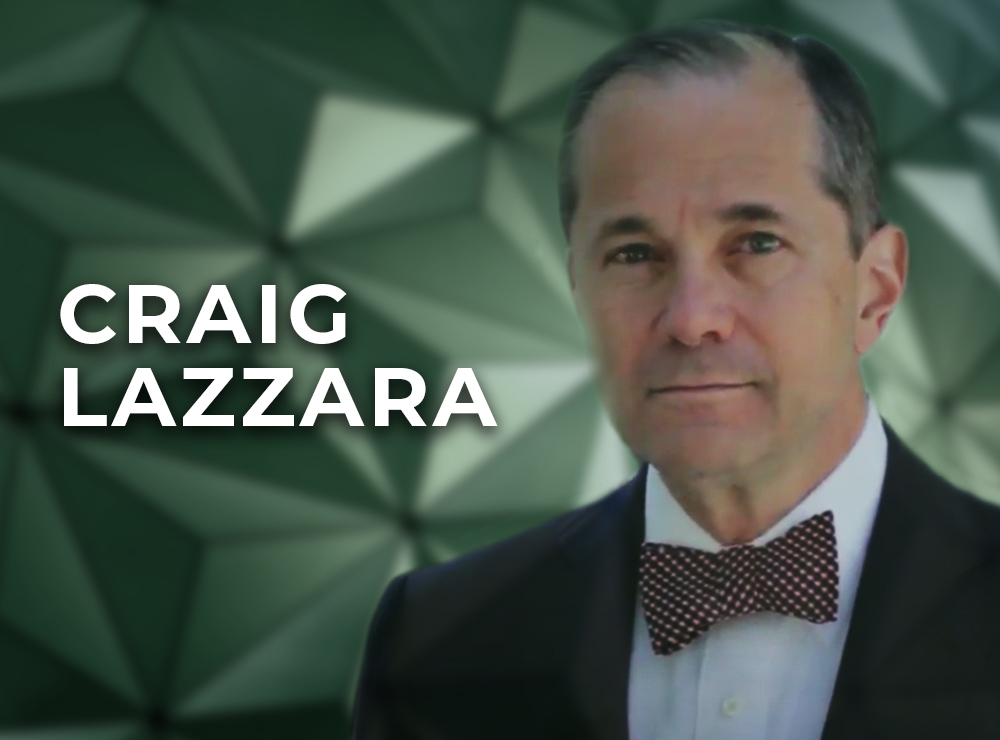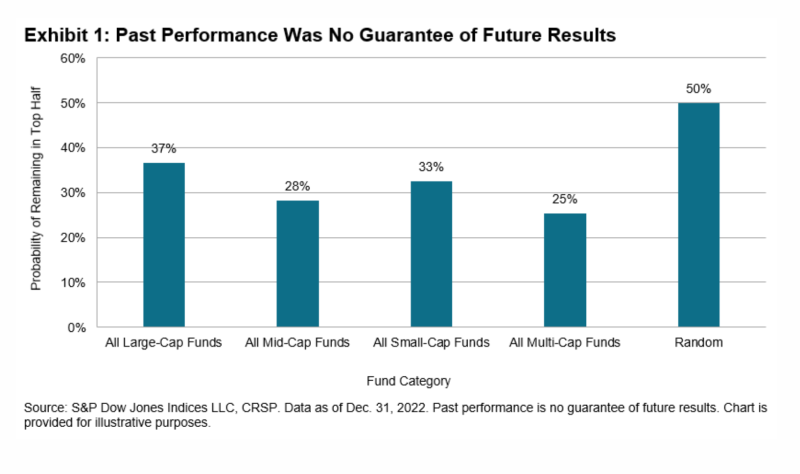
If you’ve ever read a prospectus (or, for that matter, an S&P DJI research report), you know that “past performance is no guarantee of future results”. At one level, if you understand that, you understand the most important thing about S&P DJI’s Persistence Scorecards. For the U.S., Europe, Latin America, and Canada (with Australia coming soon!) our recently released Persistence Scorecards are unanimous in showing that historical outperformance is not a predictor of future outperformance.
At a deeper level, why do we care? We know from SPIVA and other data that most active managers underperform most of the time. But even in the most challenging years, there is a range of active performance results; some managers will always do better than others, regardless of how many outperform passive benchmarks like the S&P 500. Do the top performers get there because of genuine skill or merely because of good luck?
There is, after all, no theology that precludes the existence of a (presumably small) subset of genuinely skilful active managers. If such a group existed, how would their abilities be evidenced in performance data? As a thought experiment, we can consider a hypothetical set of managers who achieve above-median performance in a particular period, and ask how they perform in subsequent periods.
If every above-median manager in period one got there simply by being lucky, we would expect half of them to be above median again in period two. If the repeat-success rate were substantially above 50%, we might begin to suspect that the above-median managers were genuinely skilful. But if fewer than 50% of the period one successes were above median in period two, that would support the view that their period one success was due to luck. If we understand something about persistence, we may be able to make inferences about manager skill.
And that is exactly what the Persistence Scorecards let us do. Exhibit 1 illustrates, using 10 years of U.S. equity data and asking to what degree above-median performance in the first five years predicted above-median performance in the second 5 years. The answer is: not at all. In every fund category, the winners in years 1-5 were unlikely to repeat their success in years 6-10.

There are, of course, other ways to test for persistence. We could examine performance relative to a benchmark rather than to a peer group, with different lookback periods (one year or three years rather than five years), with different cutoffs (quartiles rather than halves), and for different asset classes (bonds as well as stocks). Our Persistence Scorecards do all of these things and, mutatis mutandis, the results are the same.
Results produced by genuine skill are likely to continue, while those due to luck are likely to prove ephemeral. The data suggest that good active performance often owes more to luck than to skill.
CRAIG LAZZARA is Managing Director and Global Head of Index Investment Strategy at S&P Dow Jones Indices.
PREVIOUSLY ON TEBI
Second Lives — a new series on The TEBI Podcast
True financial freedom is having enough
The active managers who invest their own money passively
FIND AN ADVISER
The evidence is clear that you are far more likely to achieve your financial goals if you use an adviser and have a financial plan.
That’s why we offer a service called Find an Adviser.
Wherever they are in the world, we will put TEBI readers in contact with an adviser in their area (or at least in their country) whom we know personally, who shares our evidence-based investment philosophy and who we feel is best able to help them. If we don’t know of anyone suitable we will say.
We’re charging advisers a small fee for each successful referral, which will help to fund future content.
Need help? Click here.
© The Evidence-Based Investor MMXXIII









